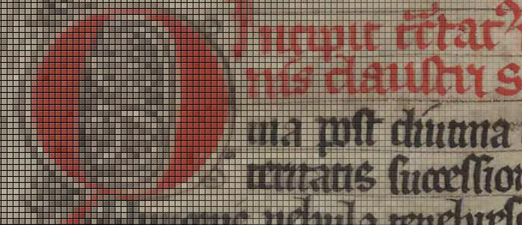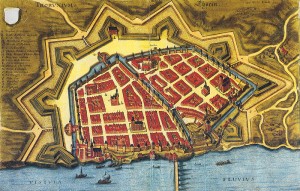|
Digital meets Culture https://www.digitalmeetsculture.net/article/polands-presence-in-europeana-is-growing/ Export date: Sat Feb 21 4:31:39 2026 / +0000 GMT |
Poland's presence in Europeana is growing A conference was held in Torun to discuss about the Polish stategy for digitization and about the collections that are currently available, or will be soon available, in Europeana. Article by Justyna Walkowska, source: PSNC Digital Libraries Team' blog The Polish Collections in Europeana conference was organized in the medieval city of Toruń on October 18-19, 2012 by the International Centre for Information Management Systems and Services ICIMSS. The opening speech, The Decision to Digitise, was given by Eleanor Kenny of the Europeana Foundation. The remaining presentations, delivered in Polish, may be divided into the following four categories:
Two presentations were given by representatives of The Ministry of Culture and National Heritage: The Digitization Strategy of The Ministry of Culture and National Heritage (Anna Duńczyk-Szulc) and The Project of a Ministerial Portal Dedicated to Cultural Heritage Resources Digitization (Agata Bratek). The portal is to be launched at the beginning of 2013. A number of Europeana-related projects were presented, including:
Representatives of a number of big Polish institutions presented their current activities, including those related to Europeana:
Poznań Supecomputing and Networking Center prepared a presentation entitled The Digital Libraries Deferation: Supporting Institutions of Culture in Making Their Resources Available Online, Metadata Aggregation for Europeana (Marcin Werla, Justyna Walkowska), which is available here (in Polish). In the presentation we describe the role of the Polish Digital Libraries Federation in the Polish digital heritage resources environment and in the context of the Polish IT infrastracture for researchers and science. We also present our cooperation with Europeana, including a number of projects we have been involved or will be involved in near future. The problems section was opened by a presentation prepared by prof. Folga-Januszewska, Problems Concerning the Delivery of Polish Museums Collections to Europeana. The representatives of smaller institutions were interested in obtaining information on digitization projects funding. A very important issue was Europeana's new Data Exchange Agreement. A set of materials and opinions on this subject in the context of the Polish law are available here. The agreement, based on Creative Commons 0, is quite problematic in Polish law. It is not possible to waive copyright in Poland, and licenses can only be granted for enumerated fields of exploitation. The current ministerial directive is to send to Europeana only those metadata records or parts of records which are not copyrighted. This means, for example, excluding the conservation-restoration description of an object's state. A very good news for all European readers is that the deputy director Katarzyna Ślaska announced that the National Library of Poland has decided to sign the agreement. Another recurring subject was the need to translate (by a group of GLAM experts) the documentation of the most popular metadata description formats into Polish, so that they are unambiguous and used consistently by institutions. The conference was open for general public, and there were a few people intested in publishing their private collections online. One of those people was Piotr Grzywacz from Tuchola, running the private Hunting Signals Museum. |
